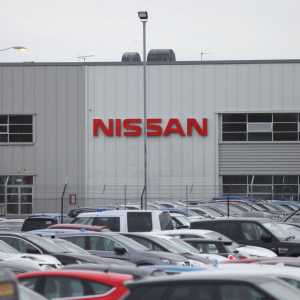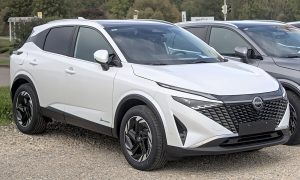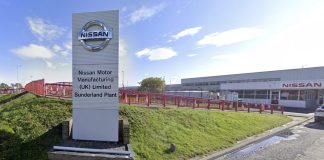A senior Nissan boss has warned that the UK is “not a competitive place to be building cars”.
Just weeks after the manufacturer reduced operations at its Sunderland plant, one of the company’s top bosses told MPs on Tuesday that the Government must do something to support the country’s automotive sector and that it was simply too expensive to build here.
Alan Johnson, the senior vice president for manufacturing, supply chain and Purchasing for Nissan’s Africa, Middle East, India, Europe and Oceania operations, told members of the House of Commons’ Business and Trade Committee that the Sunderland factory “pays more for its electricity than any other Nissan plant in the world”.
He said: “We are in a competition, you have to compete. It is becoming more and more evident to me that manufacturing vehicles in high volume in the UK is not competitive. It is not a competitive location to be building high volume production these days.
“It is energy costs, it is the cost of everything involved in the cost of labour, training. It is the supplier base or lack of. All sorts of different issues.”
Mr Johnson added: “Ultimately, the UK is not a competitive place to be building cars today.”

Nissan announced last year that it would be cutting around 9,000 jobs worldwide, following financial results for the first half of 2024 revealed how its operating profit plummeted by £1.59 billion.
Talks over a merger with fellow Japanese firm Honda subsequently collapsed and factory closures have since been announced, including in Thailand.
The Sunderland plant, where around 6,000 people are employed, has emerged relatively unscathed so far.
While it was confirmed in February that a late shift on one of Nissan’s Wearside production lines would be closed, no jobs were lost as a result as roughly 400 affected workers were switched onto other lines to “maximise efficiency”.
At Tuesday’s hearing in Parliament, Mr Johnson called for more to be done to incentivise the sale and production of electric vehicles in the UK.
However, he welcomed a relaxation of regulations on Zero Emissions Vehicles (ZEVs) announced by Sir Keir Starmer.

Nissan had previously warned that a mandate requiring 80% of new cars sold by each manufacturer in the UK to be zero-emission by 2030 “risks undermining the business case for manufacturing cars in the UK, and the viability of thousands of jobs and billions of pounds in investment”.
Labour confirmed earlier this month that it would give car manufacturers more flexibility in the run-up to that date and allow hybrids to be sold for longer.
Mr Johnson said that new electric Leaf and Juke models are due to be made in Sunderland and that “we need the market to be there”.
He also told the committee: “Every time there is a piece of legislation that impacts on automotive, it needs to help us not hinder us. It is difficult enough as it is at the moment.”
The Nissan executive also reassured MPs that the impact of Donald Trump’s tariffs on the Sunderland plant was “small”, though the company as a whole was “impacted significantly”.
UK imports to the US are now charged a 10% tariff – with higher 25% rates for cars, steel and aluminium.
However, a North East Combined Authority meeting heard last week that road vehicles and components account for 30% of the North East’s exports across the world but less than six per cent of its exports to the USA – leaving the region “less exposed” than other areas, like the Midlands-based Jaguar Land Rover operation.




